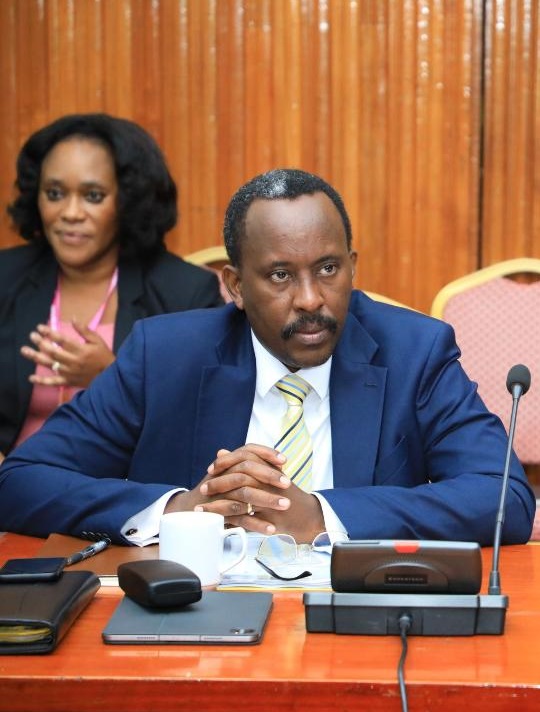
The Uganda Revenue Authority (URA) plans to re-register all street shops to identify and screen traders who are not eligible to use the EFRIS system and pay the Value Added Tax (VAT).
“We have gone back to Kikubo, and we want to register shop by shop so that we can differentiate the small people who sell on verandahs, the people who don’t even have a shop address who are called the Bayiribi and for sure as the law provides, if these people are below the threshold they will not be charged,’’ said Mr. Musinguzi.
These were the remarks made by Commissioner General of (URA) John Musinguzi when he appeared with officials from the Authority before the Parliamentary Oversight and Accountability Committee (COSASE) to discuss the findings of Auditor General John Muwanga’s report for the 2022/2023 fiscal year.
According to John Musinguzi, it was discovered that some traders were not paying the tax, and as a result, the URA forgave the traders who were found not to have paid the tax recently.
“He mentioned that as an authority, they have advised the trade leaders in Kikubo to ensure that traders issue proper receipts, including physical receipts with an address. This will make it easier to distinguish between traders who meet the threshold and those who do not. Adding that it will ensure accuracy, the reason the URA has waived some of the penalties issued to traders who were below the threshold ending June 2024.
URA Boss also John Musinguzi revealed that the Revenue Authority estimates it loses about 4 trillion Ugandan shillings annually due to a lack of capacity to monitor business transactions.
“We have been having VAT for close to 30 years, but we only have 32,000 taxpayers on the VAT register, why? they are expected to voluntarily declare that, am above the threshold of above 150 million Uganda shillings per annum,’’ Musinguzi explained.
He stated that for URA to determine the VAT threshold, all businesses must adopt the Electronic Fiscal Receipting and Invoicing Solution (EFRIS) technology.
Buzaaya MP Mugabi Martin Muzaale and Kashari South MP Itungo Twesigye Nathan urged URA to promote the EFRIS program in rural areas to enhance traders’ understanding.
Member of Parliament for Buzaaya, Martin Muzale, stated that people are perceiving the Electronic Fiscal Receipting and Invoicing Solution (EFRIS) technology as a new tax, rather than a system to collect revenue.
In response, Commissioner Gen. John Musinguzi promised that they would continue to educate traders on the system to help reduce the number of traders who are still evading taxes, which has been affecting the country’s economy.
Musinguzi also assured that they will not suspend EFRIS for its benefits, especially in tracking tax evaders
Chairman of the committee Medard Lubega Ssegona said that as Parliament, they will keep their eyes on URA and its EFRIS system, and if it is found to be oppressive to the common man, they will take action.




